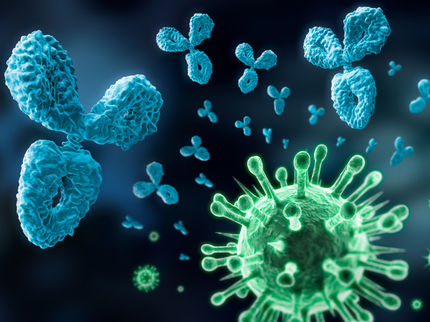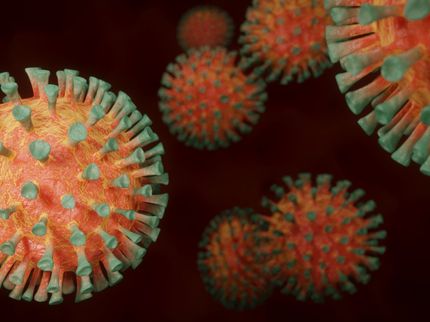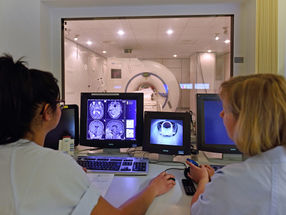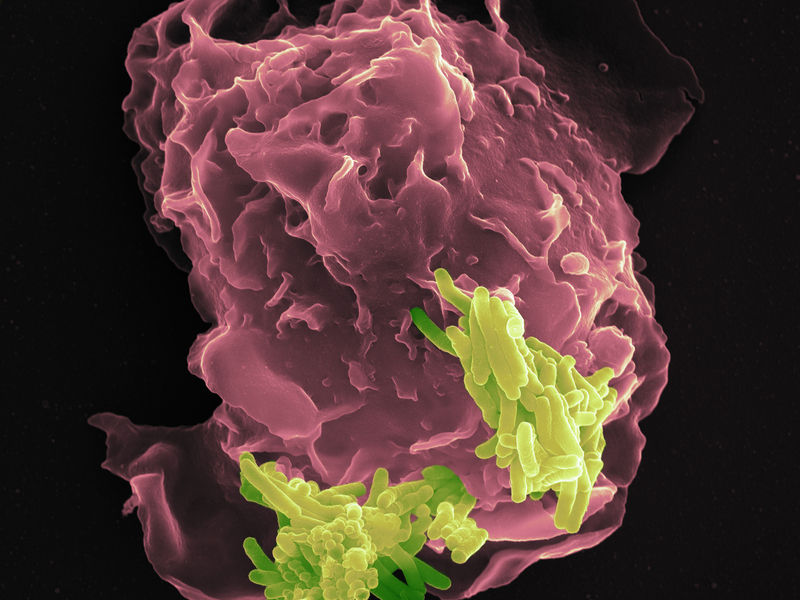Vaccines to boost immunity where it counts, not just near shot site
Advertisement
Researchers at Duke University Medical Center have created synthetic nanoparticles that target lymph nodes and greatly boost vaccine responses, said lead author Ashley St. John, Ph.D., a researcher at Duke-NUS Graduate Medical School. The paper was published in Nature Materials.
Currently all other adjuvants are thought to enhance immunity at the skin site where the vaccine is injected rather than going to the lymph nodes, where the most effective immune reactions occur. The current study used mice to show it is possible to shift the delivery path directly to the lymph nodes.
The researchers based their strategy on their observation that mast cells, which are cells that are found in the skin that fight infections, also communicate directly to the lymph nodes by releasing nanoparticles called granules.
"Our strategy is unique because we have based our bioengineered particles on those naturally produced by mast cells, which effectively solve the same problem we are trying to solve of combating infection," said St. John, who is in the Duke-NUS Program in Emerging Infectious Diseases.
The synthetic granules consist of a carbohydrate backbone that holds tiny, encapsulated inflammatory mediators such as tumor necrosis factor (TNF). These particles, when injected, mimic the attributes of the granules found in natural cells, and the synthetic particles also target the draining lymph nodes and provide for the timed release of the encapsulated material.
Traditional vaccine adjuvants may help antigens (the small part of a pathogen that is injected during vaccination that the body reacts to) to persist so the body can have an immune reaction and build antibodies so that when a real pathogen, such as the flu virus arrives, it will be conquered. Alternatively, adjuvants may activate cells called dendritic cells, which pick up pathogen parts and must travel from the skin to lymph nodes where immune reactions are initiated.
The Duke team, however, has created a vaccine adjuvant of nanoparticles that are capable of traveling from the point of injection to the lymph nodes where they act on many cell types of the immune system to spur the right reaction for a greatly increased immune response.
The researchers found that they could use this adjuvant in vaccinations of mice with the influenza A virus.
In levels of flu virus exposure that would be lethal in typical mice, the vaccinated mice were able to fight off the disease and had an increased survival rate, thanks to the effective immune response the particles stimulated.
The researchers also showed they could load the same type of particles with a different immune factor, IL-12, that directed a response toward a different set of lymphocytes. This is an important finding since certain types of infections require specialized responses to be overpowered by the body.
St. John said the flexibility of the synthetic particles and their ability to target certain lymph nodes represented a new avenue of personalized medical treatment – personalized vaccines.
Senior author Soman Abraham, Ph.D., professor of pathology, immunology and molecular genetics and microbiology at Duke in Durham, N.C., and emerging infectious diseases at Duke-NUS, is cautiously optimistic that the mast-cell-inspired synthetic particles could make their way into human use soon.
"It should not be long because all the individual cytokines (immune system factors) and additional materials loaded into these particles are already FDA approved for use in humans," Abraham said. "There is a lot of interest in nanoparticle-based therapy, but we are basing our materials on our observation of mast cells in nature. This is an informed application to deliver the right material to the right place in the body to get the most effective immune reaction."




























































